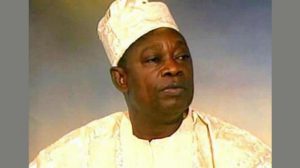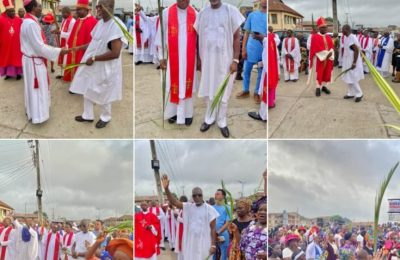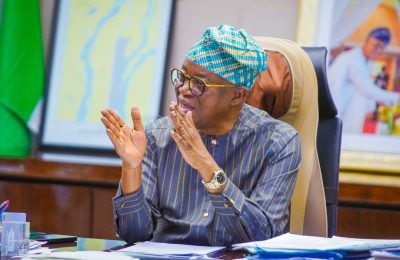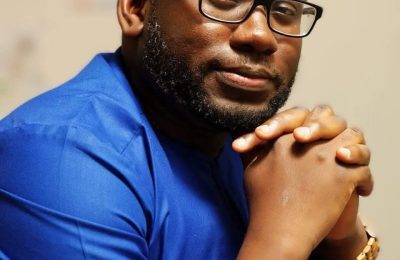

THE annulled June 12, 1993 Presidential election has been repeatedly referred to as a watershed in Nigeria’s history. The reasons for this assertion are not far-fetched. That election was the freest and fairest election in the electoral history of the country.
The then Federal Electoral Commission, FEDECO, adopted a unique voting system known as Option A4 which made rigging and other electoral malpractices practically impossible. It made accreditation, voting and declaration of results happen simultaneously in different voting units across the country, with the active participation of electoral officials, party agents and security agents in the presence of the voters.
There was no room for bribing of voters, hijacking of ballot boxes or falsification of results. Option A4, though regarded then as a unique voting system with several limitations turned out to be very effective in checkmating the excesses of the desperate Nigerian politicians.
The end result was that the result of the election was publicly known even before FEDECO started announcing it in Abuja based on returns from the states. Fourteen states had been announced and a clear winner already emerged before the General Ibrahim Babangida-led Military Administration stopped the process and eventually annulled the freest and fairest election in Nigeria’s history.
In examining the direct impact of Option A4 in Nigeria’s electoral process, certain fundamental issues were very clear. Chief Moshood Kashinmawo Osuolale Abiola, the leading candidate in the election, who would have been declared as the President-elect, if the process had not been truncated was a Moslem.
The fact that he picked a Moslem running mate, Ambassador Babagana Kingibe didn’t matter to the voters. They massively voted for Moslem-Moslem ticket. Religion therefore wasn’t a consideration in that election. The analysis of the result showed that the mandate was pan-Nigerian.
The fact that MKO’s opponent, Alhaji Bashir Tofa was a Northerner with a running mate from the South East had no impact on the voting pattern. So Tribal and Ethnic sentiments were also pushed aside by Nigerians. The Euphoria across the country was so positive that it became apparent that a new Nigeria was emerging through June 12 electoral process. June 12 therefore could have been a foundation for a new Nigeria.
The annulment of June 12 election and the subsequent crisis it generated was what led Nigeria to its present quagmire. Another process, initiated by the late maximum ruler, General Sanni Abacha was a direct opposite of the process that led to June 12. Abacha was helibent on transmuting from a military dictator to a civilian president that every step of that process was rigged to produce him as a sole presidential candidate of the five political parties that emerged from the process.
That was why he supervised the writing of a constitution specifically designed for him to use as civilian dictator. In doing this, he had the backing of the Northern political establishment made up of individuals who were unhappy about June 12 and who were fundamentally opposed to transfer of power to the south.
Abacha’s sudden death in office was a divine intervention that saved Nigeria from perhaps the worst dictatorship that could have emerged in the country’s history. It is unfortunate however that it was the same Abacha’s Constitution that Nigeria retained till today which is causing division amongst the three major tribes today.
It must be noted that Chief Adesunbo Onitiri along with Late Barr. Richard Babatunde Adejumo played a significant role in the June 12 election to hold. They obtained the historic judgement that enabled Nigerians to vote at the election of June 12. Onitiri also played an important role at the swearing in of Late MKO Abiola as the President of Nigeria otherwise known as EPETEDO DECLARATION.
General Abdulsalam Abubakar, Abacha’s successor dusted the document and presented it to Nigerians as the 1999 Constitution.
Another fall-out of the annulment of June 12 was that the Late General Abacha was not working alone in his quest to transmute into civilian dictator. He had a lot of foot soldiers across the country. What made it easy for him to go that far was money. Abacha opened the Central Bank of Nigeria for anyone willing to work for the actualization of his ambition.
So, all the politicians who participated in the Abacha transition programme did so for the money. His sudden death was not anticipated. That threw spanners into the deal. The next option was for Abiola, then in Abacha’s detention to be released to claim his mandate. Abacha’s people especially in the military and their civilian collaborators would not want that.
Too much investment had gone into their plot to grab power in Nigeria. So, Chief Moshood Kashimawo Osuolale Abiola, the Nigerian president-elect, through the freest and fairest election in Nigeria’s history must die for them to achieve their ambition despite Abacha’s death.
It is therefore clear that General Abdusalam Abubakar’s transition programme was a continuation of Abacha’s programme. The registration of new political parties was just a strategy to allow Abacha’s politicians , who were loaded with loot from Abacha’s self succession plot to regroup.
So, money politics and other bizarre behaviour of the Present Nigerian Politicians were direct consequences of Abacha’s ambition designed to bury June 12 permanently. That process has now thrown up the worst political system, which caters only for the politicians and their appointees while ignoring the welfare and well- being of ordinary Nigerian.
The Chicken has finally come home to roost with the current APC Government and its nepotic and ethno-focused behaviours, forcing different ethnic nationalities in Nigeria to start clamouring for self determination.
To repair the damage, Nigeria must immediately initiate a process of allowing Nigerians to write their own constitution. Further attempts to force Abacha’s Constitution down their throats will lead to doom. Nigerians, in writing their constitution, will renegotiate the terms of their union in a federation. The issue of restructuring will be laid to rest permanently. It is yet not too late to start this process.
Secondly, a process of political reforms must begin in earnest. The present political system has shut out ordinary Nigerians from actively participating. The present money politics, where only rich individuals can afford to indicate interest in aspiring for public office is undemocratic. The leading political parties in Nigeria have used money, not patriotism, knowledge, intellect, positive values., community development spirit and care for the common people as criteria for selecting aspirants to public offices. Where ordinary forms to express interest, fight for nomination and participate in primaries cost millions, only money bags can participate. Shutting the door against honest, hardworking and highly intelligent Nigerians by focussing only on money can never lead to good governance.
Elections must be free and fair. That was the credibility of June 12. Nigerian must be given a free hand to elect their leaders. Manipulation of elections to foist underserved politicians on the people will only compound the woes facing Nigeria. MOK Abiola won the June 12 Presidential election in a free and fair contest. That is why his electoral victory has remained a watershed till date.
It is good and appreciated that the Buhari administration has post humorously recognized Abiola as the winner of the June 12 election and restored full Presidential Privileges to him. Recognition of June 12 as Nigeria’s democracy day is also the right thing to do. These actions will however remain just mere gestures unless political reforms in Nigeria are built on the foundation of June 12, when Option A4 was adopted.
Mass participation is electoral process and free and fair elections. Anything else is building on a bad foundation and will only lead to the collapse of the country.
The electoral reform bill should be signed into law before 2023. Option A4 clause should be incorporated into the electoral law to check mate lawlessness and fraud. Aftermath of June 12 and unity of the country is essential.
The good legacy President Buhari can leave behind come 2023, is to leave Nigeria more united than he met it in 2015 by banning open grazing in the country, lift the ban on twitter now causing serious agitations in the country, arrest the unknown gun men and prosecute the killer Fulani herdsmen. Buhari should put an end to insecurity and banditry in Nigeria. Above all dialogue with IPOB (Indigenous People of Biafia) . As President Buhari is on his last lap to 2023 he should as a father figure address the Nation and itemize his numerous achievements since 2015. Lastly, he should also declare a state of emergency on insecurity as well as tag the Fulani armed herders as terrorists immediately.
- Chief Adesunbo Onitiri is a socio-political activist and critic from Lagos.
Nationnewslead: Kindly contact us @ Nationnewslead@gmail.com Call or Whatsapp: 08168544205, 07055577376







